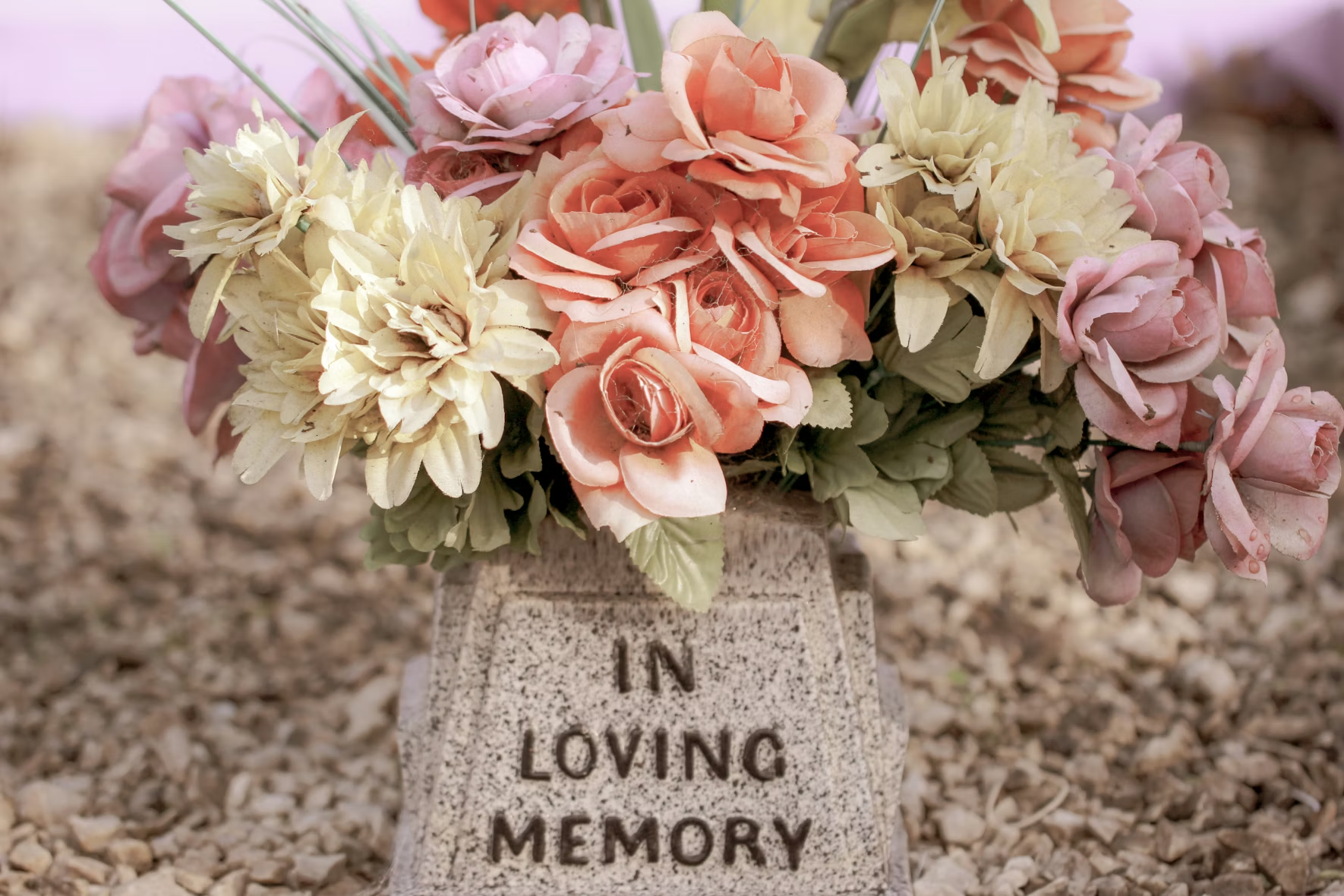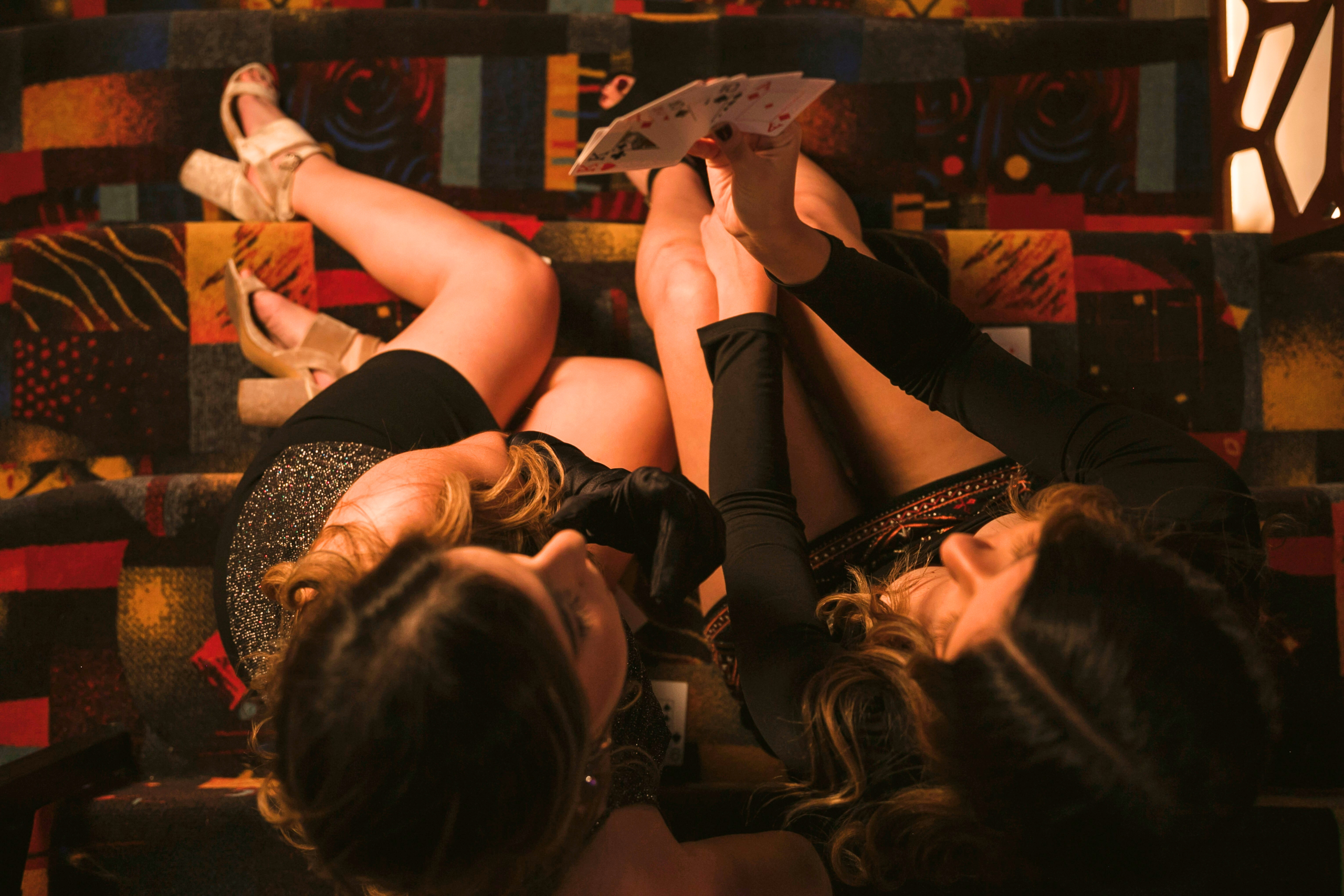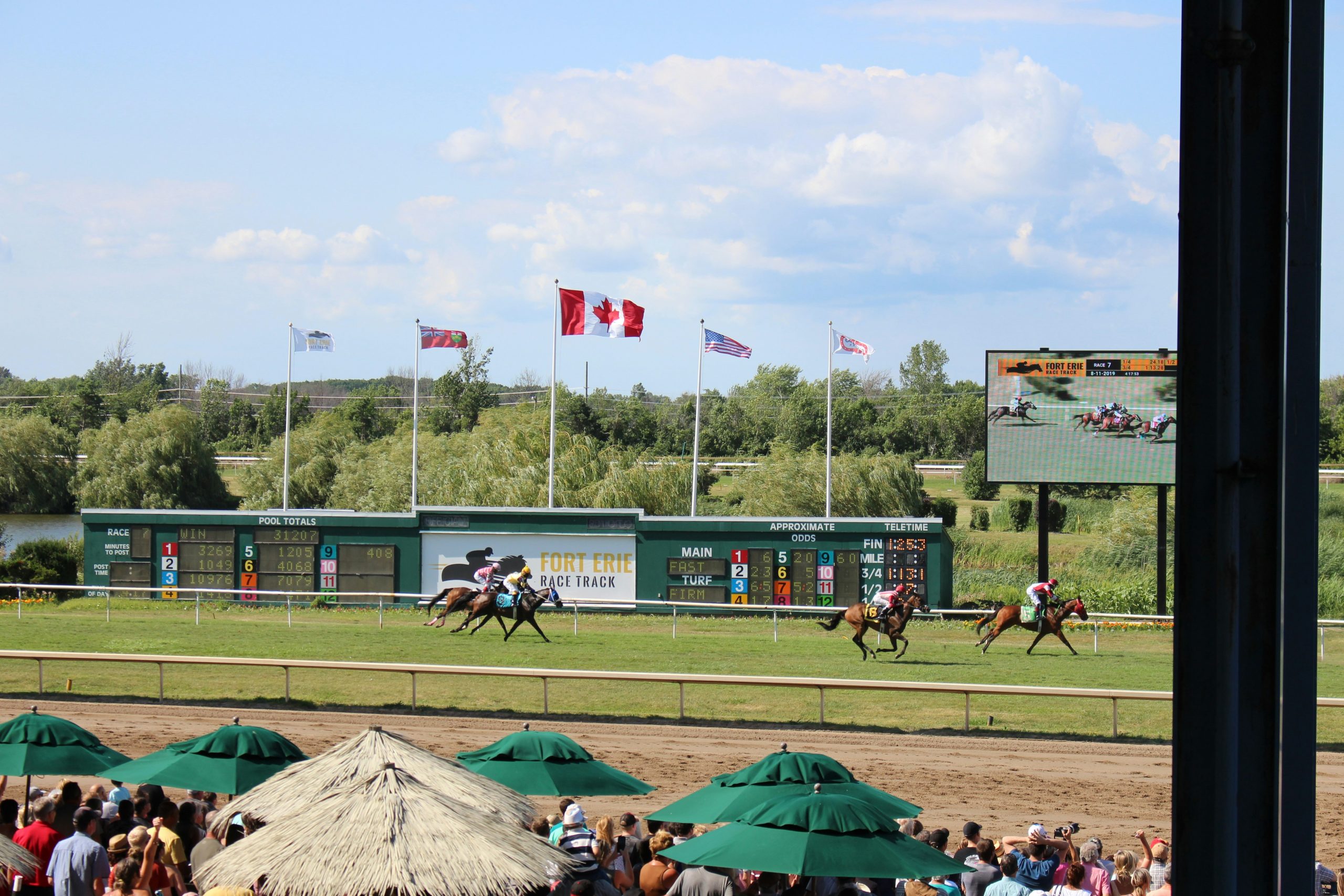Lit Mags
A Story of Strangers and Emotional Celibacy
“Creed” by Carys Davies
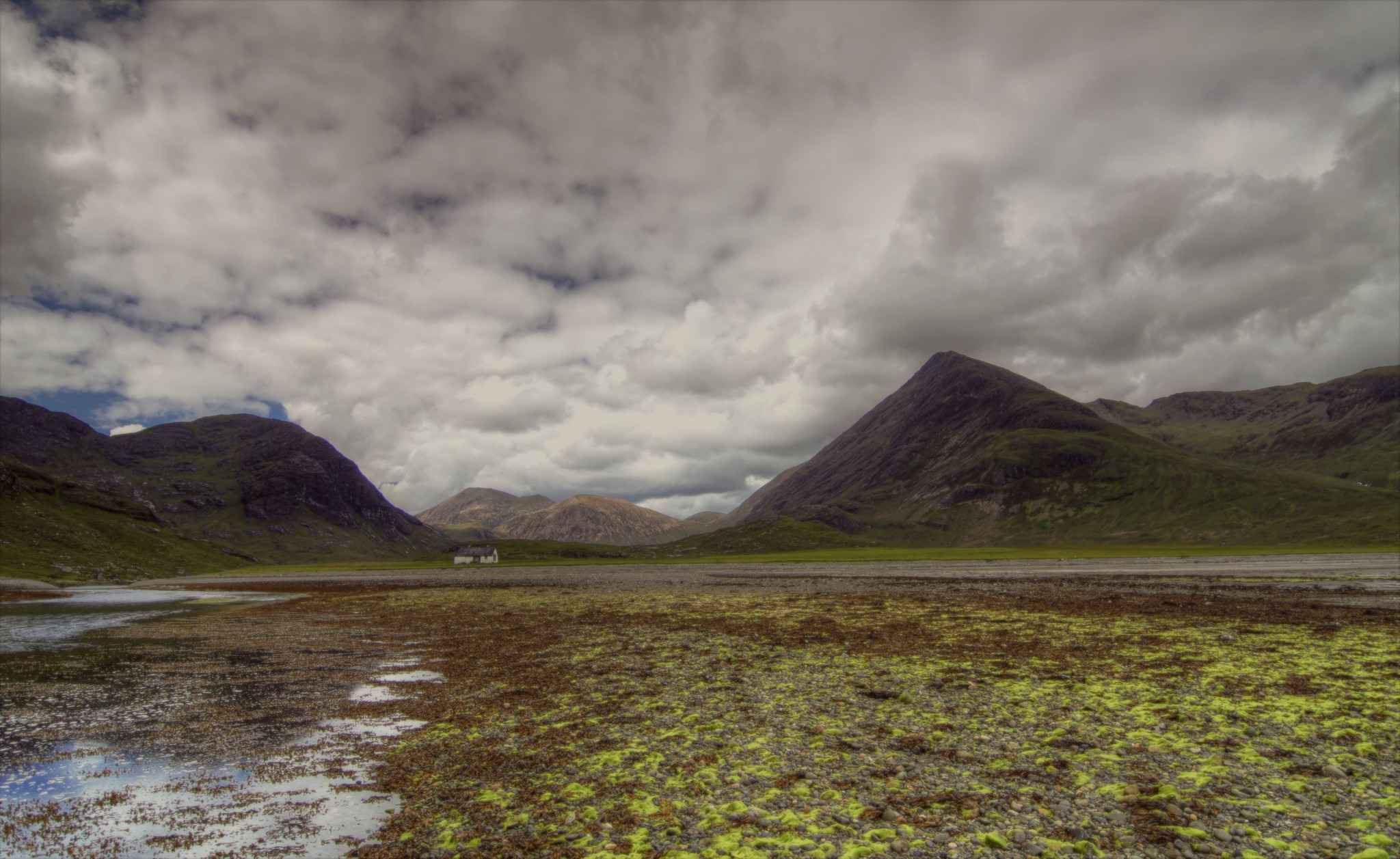
AN INTRODUCTION BY DAVID CONSTANTINE
The story takes place on the high fells of the eastern Lake District. Below, in the north, are the towns of Penrith, where every three months Ruth gets taken by taxi to do her shopping, and Carlisle, where her brother and sister now live. Once a year, using the old high Roman road, Michael Creed drives his lambs down off the fells for slaughter. The Scotsman, Ruth’s fateful visitor, arrives at her house in darkness and fog via Rampsgill Head and Blea Tarn, a perilous route. “Creed” is proof, if any were needed, that out of the local and particular, with sufficient love and faith, a story can be made that will exceed, without ever deserting, its location, and touch any reader anywhere. Rooted in local realities, Carys Davies’s characters live lives that are, in Keats’s phrase, ‘like the scriptures, figurative.’ And her writing is an act not of transfiguration, but of revelation.
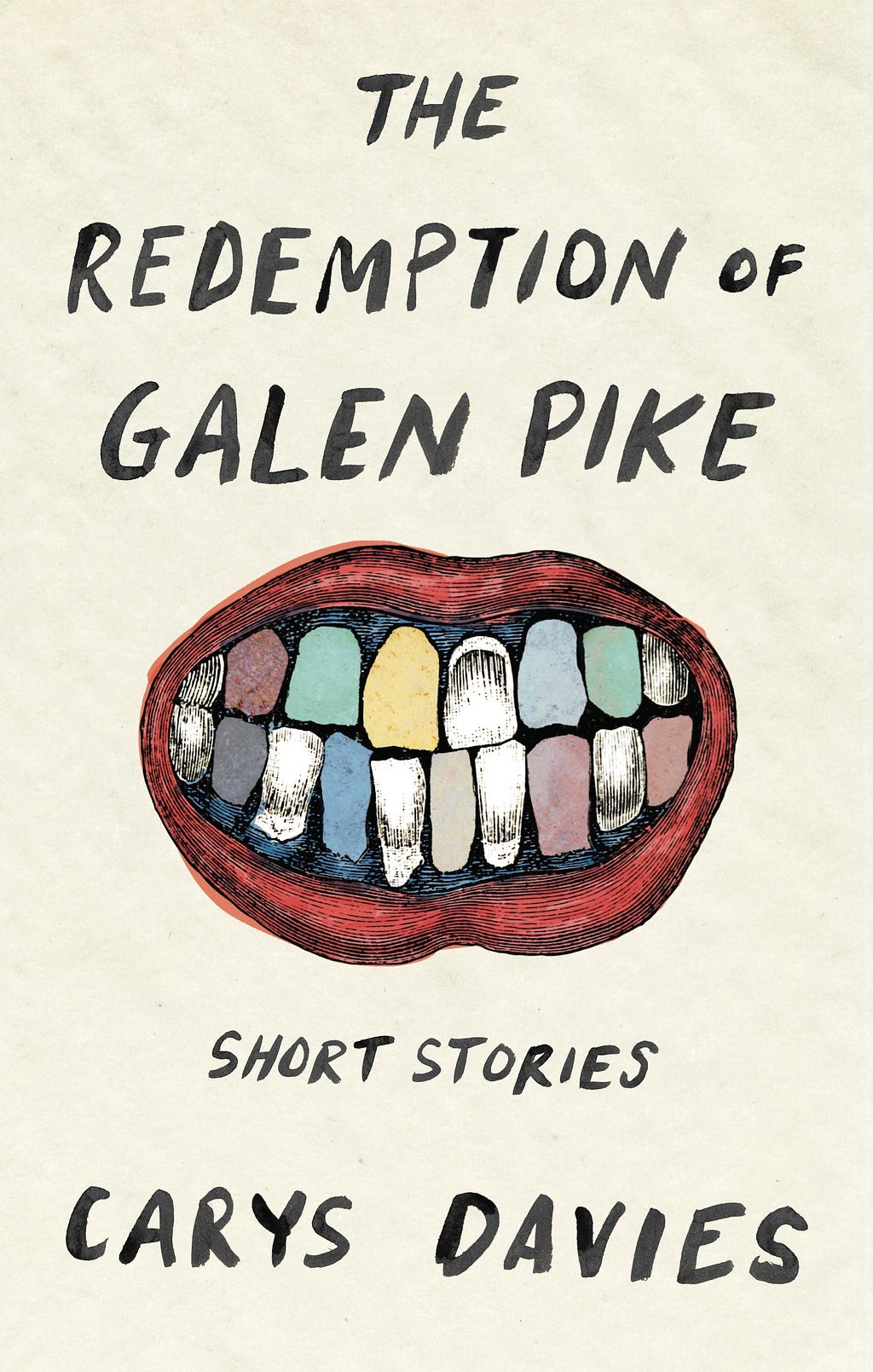
On the death of his young wife, Creed turns violently against God for not saving her, and against God’s minister, Ruth’s father, for trying to comfort him. He leaves his farm and moves to a rough bothy, higher up, and lives there alone with his sheep and dogs. The village empties, its people die or decamp into modern life far below. Ruth remains alone, with her chickens and her cow. She looks after her father’s empty church and reads the lesson there every Sunday aloud to no congregation. In that piety, as in Creed’s very name, in all the desertion, anger, and loneliness, the ‘word of God’ — or let us just say a sense of the holy — is being kept alive. The Scotsman’s fleeting visit, so momentous in its consequences, might remind us of the words, ‘And some have entertained angels unawares.’ Up there on the fells, Davies’s characters are in living touch with beautiful and terrible realities. They live like characters in a tragedy.
Much love, tenderness, courage, loyalty, work, goes to waste.
At the heart of tragedy there is waste. Creed’s rage of grief and Ruth’s timidity keep them from the solace of each other’s company until it is too late. Much love, tenderness, courage, loyalty, work, goes to waste.
Ruth’s baby girl, whom Creed brings into life like a lamb out of a stricken ewe, will be, if not a consolation — too much has gone beyond all consolation — at least a hope, a focus of love, a fellow creature to nurture into further and further life. He calls her Rowan, after the tree growing out of his stone wall. The rowan tree, so beautiful in its shape, leaf, blossom and fruit, is also exceptionally tough. I have seen them growing in that country out of sheer rock faces, putting out horizontally, then striving upwards, in late summer holding up their orange-red berries like a lamp so bright and warm it would see you through any winter.
David Constantine
Author of In Another Country
A Story of Strangers and Emotional Celibacy
Carys Davies
Share article
“Creed”
by Carys Davies
She could see Creed’s place now, up ahead, not more than another three quarters of a mile.
On the big flat stone at the top of the path she stopped to rest, pushed back her sticky hair and wondered again what he would do when he saw her — what he would say and how he would be and what he would look like too, close-up, after all this time.
For years now, for most of her life, she’d seen him only from afar, mending his walls or checking on his sheep or coming down off the high fell with a bucket to the spring above the waterfall, a bulky hatted figure.
A few times over the years she’d thought about going up there and knocking on his door and saying to him, Michael it’s me. Ruth. From the valley. Come. Sit with me at least.
Once not long after her thirtieth birthday she’d come up this far along the path with a box of her brother’s old dominoes in her pocket. All the way along the river and up over the slick black rocks on the west side of the beck to the top, with the game’s smooth pieces chinking against each other and her thumb fidgeting with the sliding wooden lid, she’d rehearsed what she’d say to Creed when she reached him: that it was crazy, idiotic, them living like this — the two of them in this vast forgotten garden of bracken and stone and pasture and bog, like the very last people on earth, but never speaking, never coming close to one another.
She’d pictured them both at his table, her brother’s dominoes spread out between them in various arrangements, not speaking perhaps (neither of them had much practice at that) but at least sitting together in a not-uncomfortable silence. Then up here at the big flat stone at the top of the path she’d lost her nerve. In the distance, his thick-walled bothy with its arrow-slit windows had looked so closed-in and stubborn and hunched against the weather and the world, so like a fortress for his feelings, that she’d lacked the courage to go on and had turned around and gone back down.
Today she was wearing her brown work boots and her black coat and her blue dress and she hoped she looked respectable. She didn’t want Michael Creed to open his door and look at her and think she was a fright.
She’d been a child when his wife died, ten or eleven years old.
She remembered the two of them coming to her father’s church. The wife’s dark hair. Creed a young man, broad-shouldered and strong, with a neat beard.
Her father had gone up there a dozen times afterwards and tried to comfort him but Creed wouldn’t let him in the house. She remembered how tired and discouraged her father had looked the last time he came home.
‘What happened, William? What did he say to you?’ her mother had asked, rather fearfully, and they’d all watched him hang up his coat and press his lips together and set down his Bible on their kitchen table and tap it lightly with his fingers. He’d looked as if he was debating with himself whether to repeat in front of his family what Creed had said.
‘He said, Janice, that God had greatly disappointed him. He said that he had begged Him for His pity and His mercy and had been refused. He said there was nothing now I had to tell him that he wanted to listen to and if I ever came trespassing on his land again and tried to talk to him about God’s love, he would come out into his yard and stick his shotgun in my crap-filled mouth and shoot me.’
Creed stayed away from the church after that, and if he ever came face to face with her father down in the valley he turned around and walked the other way. He began to avoid anyone who attended the Sunday service, which in those days had been nearly everyone. At some point he moved out of the farmhouse he’d shared with his wife and into the bothy further up the fell. Eventually he stopped coming down into the valley for anything. It was as if, not being able to look God in the eye and spit in His face, or inform Him personally that he was sending Him to Coventry forever, Creed had settled on the next best thing. Or perhaps he’d decided that there was no face to spit in and he was living in a world of fools; that from now on, he was on his own.
He mended his walls and birthed his ewes and when autumn came he drove the new season’s lambs up along the high straight track that had once been the Romans’ way north to the border, sold them to be slaughtered, picked up his supplies and walked back the way he’d come. Anywhere he had to go, he took the old Roman way, never the path down into the valley, the track along the river that took him past their house and the church.
What would he look like?
Like the other men she remembered in their fifties and sixties who used to live here? Bull-necked men with brick-red faces and bow legs and giant hands?
When he was young his hair had been brown, chestnut-colored, she remembered that.
Not as dark as his wife’s but still brown. His beard had been brown also.
And hadn’t he had one brown eye and one grey? She thought so. She thought she remembered her sister Pam remarking on it once when they were girls.
Her sister Pam and her brother Frank always asked after him when they came. ‘And what about Michael Creed?’ they said. ‘Do you ever see him, Ruth? Is he still up there?’
‘Yes,’ she told them. ‘He’s still up there.’ But what if he wasn’t? What if since the last time she’d glimpsed his bulky shape in the distance, he’d died or given up at last and gone away, like everyone else?
What if she got there and knocked on his door and there was no answer and when she pushed it open the place was empty and cleared out and there was nothing up there but his sheep and a couple of starving dogs?
In winter, months went by sometimes without a sign of him. Then there’d be a storm, a heavy fall of snow, and he’d be up there with his dogs, digging out his buried sheep. The dogs trickling over the white hillside, showing him where to put his shovel so he could bring them out alive. In spring, around lambing time, she woke sometimes in the dark and saw the pinprick beam of his flashlight moving over the sloping fields as he went about checking on things.
Over the years her father’s scattered parish had dwindled away.
One by one the farms had emptied out. The old had died, the young and the middle-aged had moved away. Where there’d been two shops and a pub, a school and a recreation room there were only the carcasses of buildings. When her father died, no one was sent to replace him. Where there’d been people and families and children there was only her left now, and Michael Creed.
Who would have thought a place could fall in on itself so quickly? That so monumental a ruin could be achieved like that? Almost, it seemed to her sometimes, it had happened in the blink of an eye, or in the course of one brief night while she slept.
Hikers who came up this far poked their faces in at her window. They seemed amazed to see curtains, chimney smoke, her boots at the door. Once, coming back from the church, she’d found a young couple in woolen hats and waterproof jackets on the step at the back of her house, picnicking on crisps and sandwiches and hot tea from a thermos. They’d hardly seemed to believe her when she said she lived here, and when they’d gone she thought of them telling their friends about the woman they’d found living way up at the far end of the valley by herself, using the words she’d overheard her sister Pam and her brother Frank whispering to each other when they came and thought she was outside, words like squalid, primitive, unhygienic.
For a time, she’d let her brother and sister drive her back with them for a few days. But in town she discovered, as the years went by, that her clothing attracted attention, that her appearance shocked people. One cold Christmas when Pam came to collect her she’d got in the car wearing both her dresses, her blue one and her knitted fawn one, one on top of the other. Pam had been ashamed. All that week Ruth saw her making silent signals with her eyes to her friends. She discovered also that she’d aged more quickly than these people. Carting water off the fell to her house in a bucket, hauling fodder from the pasture on a sledge for her cow Charlotte, chopping wood and breaking sticks and stuffing them into the stove and picking up scraps of slate off the hills to mend her roof — it had all made her age more rapidly than Pam and these other women who came to Pam’s house and tried not to gawp when Pam said, ‘This is my younger sister, Ruth.’ Like Pam, all the women still had dark hair and neat unbroken fingernails and attractive teeth. She couldn’t imagine how they managed it. She cared a little about it, this difference between the way they looked and the way she did, but not much. She told Pam she’d not be going back with her again. She was happy where she was, she’d no urge now to leave.
She’d stayed on to look after the church. When no one came to replace her father, it had been impossible for her to think of leaving it untended and unused. In winter she put holly in the alcoves. In spring, hawthorn and valerian. On Sundays she stood in the cold in front of the empty pews and read aloud the lesson. She patched the roof and polished the colored window in the nave and the blackened script engraved on the brass plaque her father had screwed into the lintel over the door when he first arrived here from the coast. It was still her favorite Psalm: I will lift up mine eyes unto the hills from whence cometh my help. My help cometh from the Lord.
In the back behind her house she grew swede and onions and potatoes and spinach. She had apples and blackcurrants and gooseberries from the trees and bushes her mother had planted. In winter an arsenal of things preserved in jars. A taxi came nine miles up the valley track once every three months and drove her to Penrith for her shopping. Her sister and her brother visited twice a year from Carlisle. She had no phone and no television but she had chickens and her cow and a sewing machine and her father’s books. She knew that there was another kind of world and she could see that it had its attractions but she did not want to live in it. She wanted to be here.
She liked it here. She was forty-two and she had not been lonely, not really. She had never lived her life expecting it to change.
Around her neck she wore the small wooden cross that had belonged to her father and as she walked she touched it every now and again to make sure it was still hidden beneath her dress.
She’d tried to leave it behind but in the end she’d not been able to.
She’d unhooked the clasp and dropped the chain into the palm of her hand and tipped it onto a plate and stepped out of the door but when she got to the path she’d felt so naked and afraid without it that she’d gone back and put it back on and slipped it inside her dress, telling herself that Creed wouldn’t necessarily see it. However things went, she would do everything she could to hide it from him.
As she walked her legs shook.
Her damp face boiled with heat, her blue dress clung to her like another skin, her heart thumped like a big beating wheel. She took off her black coat, folded it over her arm, and carried it. She wished she could turn back here and go back down to the beck and splash her face and cool her throat with the icy water.
Above her, a pair of peregrines rose in circles and vanished high up over the crags, into the blue. From beneath she could see the yellow flashes of their legs, the black streaks of their tails and wingtips and as she watched them she imagined looking down out of the sky at the dark speck of herself moving slowly over the pale brown hills towards Creed’s bothy. The ground was boggy here, up on the higher ground after the path gave out. As she plodded through it the stiff grass brushed her bare knees.
She wished she didn’t resemble her father. She wished she wasn’t tall as he’d been. She wished she didn’t have his springy hair and large beaky nose and pointy chin. She didn’t want Creed to open his door and think of her father and think that after all these years she’d come to him on some kind of religious mission. She didn’t want him to be surly and unwelcoming. She didn’t want him to slam the door in her face or bellow at her through one of his narrow windows and tell her to be gone. She didn’t want him to pull his gun on her. She wished she’d come up here that other day, with the dominoes. She wished this wasn’t her first time. She wished that the ice had been broken between them before now — that she could at least have become an ordinary neighbor to him. Come on, Michael, it’s just us now. Sit with me. Everyone else has gone. The old have died, the young are all in the towns. My brother Frank, remember? My sister Pam? They’re in Carlisle. Pam’s a nurse. Frank’s at one of the big hotels. The Glaisters have all gone. Partingtons too, and Capsticks and Pickthalls and Hawksmiths, all upped and gone.
She wondered what Creed made of it all, this emptying out. She wondered what he felt when he turned up at the slaughterhouse with his new season’s lambs, or went into the places he visited for his supplies. She wondered if the people there exchanged secret glances and if he was made to feel uncomfortable. She wondered if he felt like she did and if in spite of everything that had happened in his life, he was always glad to come home.
There was more wind up here. It cooled her face and made a rushing sound through the stiff grass and the bracken, a sound her father always used to say was the same sound he’d grown up with, the sound of the sea. When he said that, her sister Pam used to beg him to take them all on holiday somewhere to the coast, to Morecambe or Blackpool, somewhere sandy and warm where they could stretch out on towels and go bathing and eat ice cream and see the lights and a show, and every year that they didn’t go she told Ruth that the first bloody chance she got, she was off out of here, away from this boring fucking dump of a valley, these prehistoric hills and struggling miserable little farms.
Up ahead now, only another hundred yards, Creed’s bothy sat like a dark stone resting in the bottom of a deep smooth-sided bowl. All around it the tawny ramparts of the hills rose to the sky. There’d been no question this morning of setting off towards anything else; there’d been no question of the nine mile walk along the river to a road where she might sit for an hour and wait without a single vehicle passing. With each step now she felt her own slow, dragging gravity. Across the marshy ground she proceeded with difficulty and sometimes she stumbled.
His yard was bordered by a woodshed and a privy and the L-shaped dwelling part of the bothy itself. Turf and ferns and a spongy blanket of moss grew on the thick shaley roof slates. The bothy door was painted brown. Bronze lichen grew on his walls like rust. A trio of his black-faced sheep burst out from behind them when they saw her coming, bunching together and jostling each other in their hurry to get away, as if she was something dangerous.
Oh Jesus, what would he say to her? Would he be appalled by the sight of her? Would he know who she was? Would he hold that against her? Would he look past her through the open brown door and out beyond the opening in his yard across the soggy uplands and the pale brown hills and down into the long tapering valley with its scattered emptied farms and ask her how in glory’s name it had happened? Would he turn sarcastic and ask her if she’d had a visit from the Holy Spirit?
At the corner of his yard a rowan tree grew out of the stones. She leaned against it, breathed. The hour’s walk, the climb, had taken her half the day. Her hair felt prickly and dry as gorse. There was bog cotton in it, grass and cuckoo spit. Blood leaked out of her, filling her boots and coating the ground. She’d known since this morning that something was wrong.
She could no longer recall the Scotsman’s face, only his sandy hair and his pale body.
When he was gone she realized she didn’t know his name or the name of his town or what job he did in the rest of his life or if he had a wife and children. She wasn’t used to conversation and they’d hardly talked.
He told her he’d come over Rampsgill Head and round Blea Tarn and after that the fog had come down and he’d had no compass and had to continue on his hands and knees, worried that he’d turned himself round and wasn’t where he thought he was and that on one side or the other there might be nothing but crag and scree and a sheer plunging drop to the bottom. When he saw her light he’d thought at first it must be the sun or the moon, a small whitish glow in the murk.
In the morning he’d thanked her for the hot breakfast and her warm bed. He was glad the ugly weather had brought him to her door, he said. He’d had a nice time.
She could see nothing now, even in the daylight everything was dark and all she could feel was the raised lump of the cross at her throat. She wished she hadn’t worn it. She was afraid again it might make Creed angry, that anything like that might disgust him still, that he’d send her away. She began to tug at the chain and fumble with the clasp at the back of her neck. Her last mad thought was that she wished there was some way she could tidy herself up. At least put a comb through her hair.
Creed’s dogs found her in his yard.
He didn’t recognize her but he knew she must be one of the Reverend’s daughters from the valley, whichever one had stayed behind. He could see the beveled edges of a crucifix beneath the blue fabric of her dress. He couldn’t remember her name but over the years he’d seen her many times, a dark point down there, moving between her house and the church. He’d seen the cars that once in a while fetched her away then brought her back along the track beside the river. Her lips moved a little and he wondered if she was praying. There was blood on the stony earth of his yard. A large clot, dark and ragged like liver on the hem of her dropped black coat.
Creed was brawny and white-haired and tall. He lifted her up and carried her inside and put her on his bed. In his whole life he had never seen so much blood.
At the sink he rolled up his sleeves and scrubbed himself and slipped his right arm up inside her. He moved his hand up past the torn and pulsing placenta and found the breeched legs, the curving beads of the small spine. Ruth’s eyelids fluttered and Creed didn’t tell her that she’d come too late. He knelt by the bed and stroked her hair and told her in a soft voice that she was a good girl, a brave girl. He repeated the same whispered words over and over the way he did with his sheep when they couldn’t birth and they were suffering and miserable; and when he was sure there was no more time and no other way he boiled up a pan and went in under the breastbone with his razor and brought out the child, a tiny curled-up girl with a pointy chin and a small beaky nose and a glistening cap of sand-colored hair, and when the long night ended and morning came and Creed had done everything he could with his boiled cloths and his needle and his fine cotton thread, when he’d tried every desperate thing short of a prayer to stop the blood and there was nothing at all, now, that could be done and it was over, he went and stood for a long time looking out through one of his arrow-slit windows at the sloping fell aflame in the dawn with the child in his arms.
She was light as a leaf and just as beautiful.
He’d call her Rowan, after the tree in his wall.
He wished his wife could see her.





